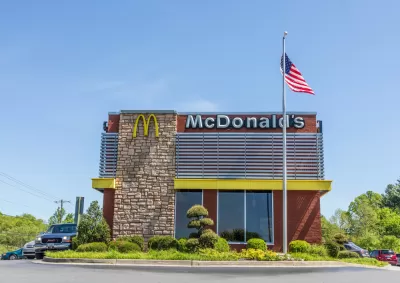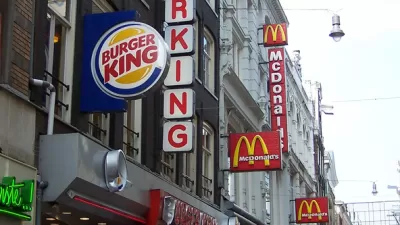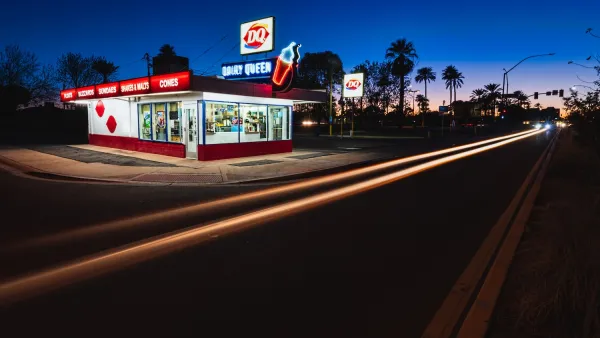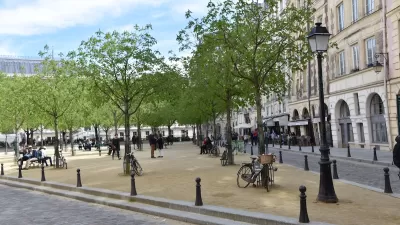McDonald's takes a lot of heat for the quality of the food, but most Americans still associate the fast food giant's restaurants, and others like it, with family, community, and good times.

The central role of fast food restaurants in American culture and community is sometime underappreciated—even though most Americans prove their appreciation for fast food most regularly.
"According to Gallup, some 80 percent of Americans eat fast food on at least a monthly basis, and 96 percent of Americans annually. No other institution, not libraries or gyms or the collective houses of worship, is that popular. Not even the internet comes close to garnering that much loyalty or participation as fast food," writes Adam Chandler.
"The United States is and remains a fast-food nation. And this isn’t simply because quick-service restaurants are purveyors of deliciously narcotic and obesogenic foodstuffs. It’s because it’s easy to build rituals in places where everyone is welcome," adds Chandler.
While the article speaks broadly about fast food, the vast majority of specific references are to the most visible signifier of the country's role in bringing the fast food franchise to the global market: McDonald's. And this isn't the first time that an article has been written about the role of McDonald's in maintaining a third place for Americans, outside of the home and the office, for Americans to gather and linger in public.
FULL STORY: Fast Food Restaurants Are Where Americans Come Together

Maui's Vacation Rental Debate Turns Ugly
Verbal attacks, misinformation campaigns and fistfights plague a high-stakes debate to convert thousands of vacation rentals into long-term housing.

Planetizen Federal Action Tracker
A weekly monitor of how Trump’s orders and actions are impacting planners and planning in America.

In Urban Planning, AI Prompting Could be the New Design Thinking
Creativity has long been key to great urban design. What if we see AI as our new creative partner?

King County Supportive Housing Program Offers Hope for Unhoused Residents
The county is taking a ‘Housing First’ approach that prioritizes getting people into housing, then offering wraparound supportive services.

Researchers Use AI to Get Clearer Picture of US Housing
Analysts are using artificial intelligence to supercharge their research by allowing them to comb through data faster. Though these AI tools can be error prone, they save time and housing researchers are optimistic about the future.

Making Shared Micromobility More Inclusive
Cities and shared mobility system operators can do more to include people with disabilities in planning and operations, per a new report.
Urban Design for Planners 1: Software Tools
This six-course series explores essential urban design concepts using open source software and equips planners with the tools they need to participate fully in the urban design process.
Planning for Universal Design
Learn the tools for implementing Universal Design in planning regulations.
planning NEXT
Appalachian Highlands Housing Partners
Mpact (founded as Rail~Volution)
City of Camden Redevelopment Agency
City of Astoria
City of Portland
City of Laramie





























